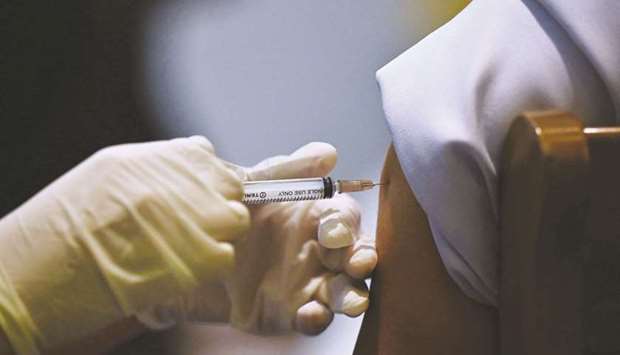Australia yesterday set a new target of vaccinating all willing adults by the end of 2021, hoping to speed a glacial vaccine roll-out that threatens the country’s pandemic success story.
Treasurer Josh Frydenberg – unveiling a free-spending, crisis-tinged budget – said the continuation of the country’s “roaring” economic recovery depended on “effective suppression of the virus”.
To that end, he said, the conservative government expected Australia’s borders to remain closed well into 2022 and for all adults “who seek to have that vaccine” to have received two doses by the end of the year.
Australia has ridden out the coronavirus pandemic by effectively sealing itself off from the rest of the world, and with a series of snap local lockdowns.
It remains one of the few places where there is no widespread community transmission and daily life is relatively normal.
But very few Australians are immunised and there have been repeated outbreaks linked to quarantine facilities, raising fears success could be fleeting.
“We don’t know what is around the corner with respect to the virus,” Frydenberg said. “The assumption is that there will be new cases.”
So far Australia has delivered just 2.5mn vaccine shots, versus the roughly 50mn jabs needed to vaccinate the entire population — lagging other rich countries, and the government’s own targets. After a series of problems with vaccine delivery and the use of the AstraZeneca vaccine for those under 50, the government is now in talks to manufacture promising mRNA vaccines domestically.
Frydenberg also unveiled a new round of tax cuts and stimulus spending that could set the stage for an election as soon as this year.
Prime Minister Scott Morrison is seeking re-election and a fourth consecutive victory for his conservative Liberal-led coalition.
Jettisoning the party’s traditional talk of belt-tightening and fiscal prudence, Frydenberg said “unavoidable” spending would see the deficit swell to A$161bn ($125bn) this year, almost 8% of GDP.
The government has committed A$291bn to virus-related stimulus, including a swathe of tax cuts and income support that is equivalent to almost 15% of gross domestic product.
The deficit explosion was limited only by increased tax revenue – as people go back to work more quickly than expected – and surging iron ore prices.
“We’re giving a very big thanks to Western Australia and the iron ore industry,” Frydenberg said.

(Representative photo)
